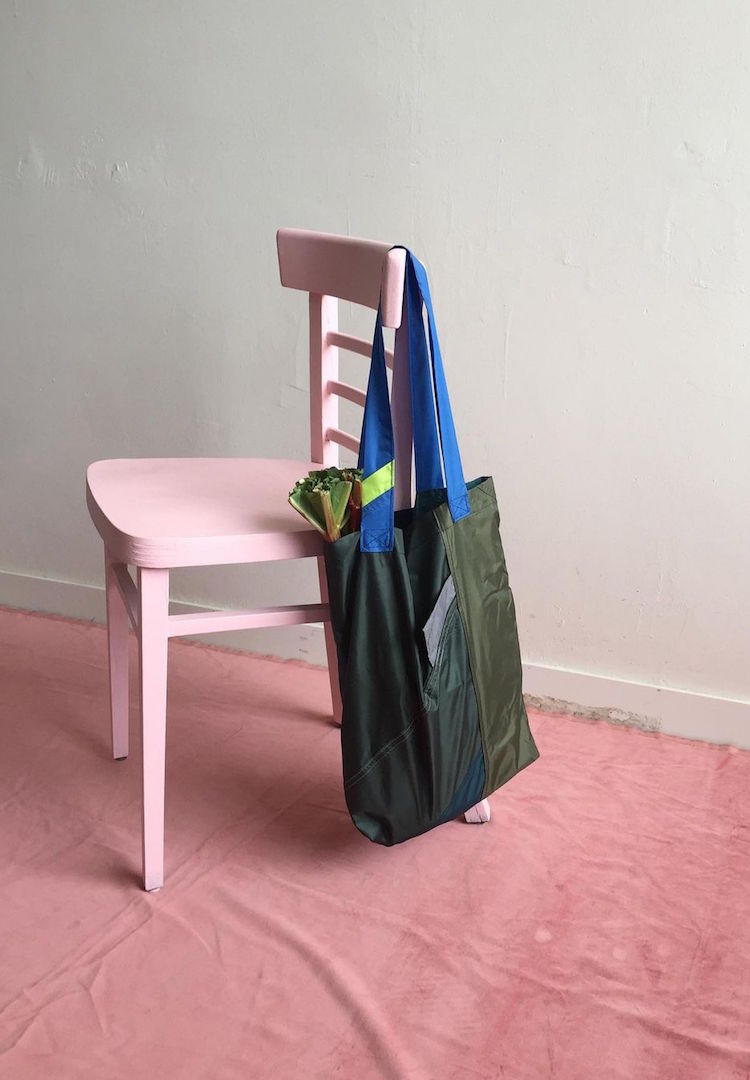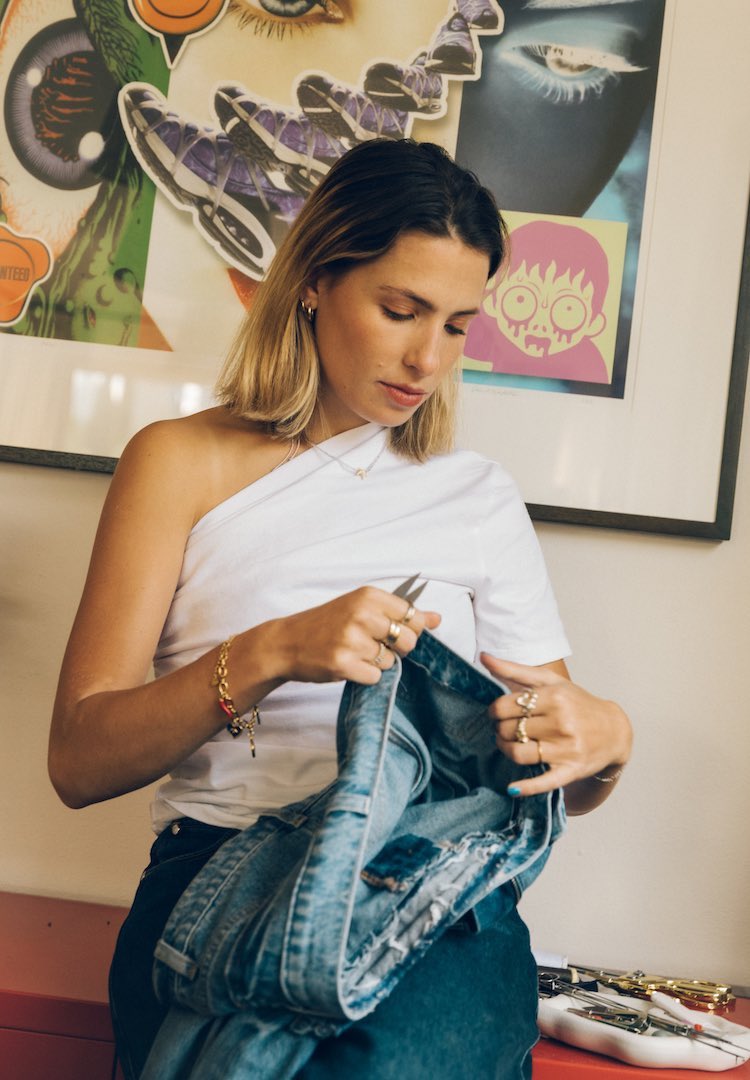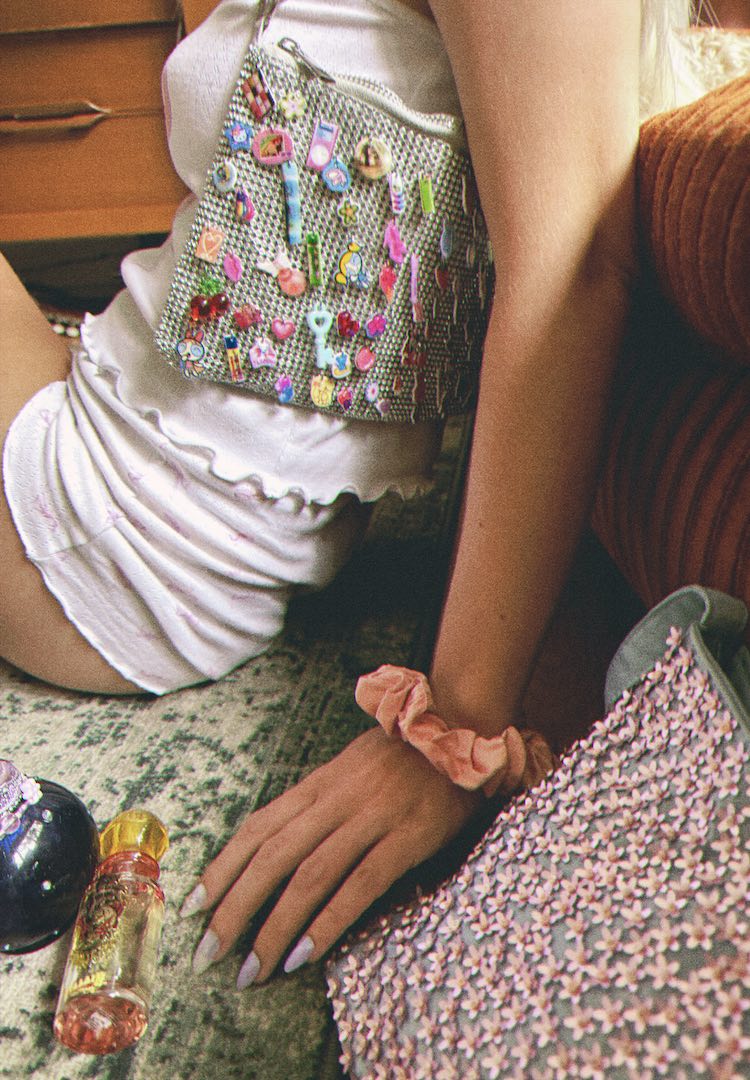How Melbourne designer Rachel Kelly turned a bag brand into a social movement
IMAGES VIA ET TU
Words by Joseph Lew
From rags to… bags?
Over the phone, it’s often difficult to gauge people’s emotions. There are certain moments you miss, subtleties that are hard to pick up. Without the social cues of a face to face meeting, it’s easy to get lost in translation. This wasn’t the case when I hopped on a call with Rachel Kelly, whose enthusiasm and passionate energy radiated through the phone from the moment I picked up.
Four years ago, at the end of Rainbow Serpent Festival, Rachel started collecting discarded tents. From there, she founded E Tū, which at first glance, seems like yet another sustainable fashion start-up. The website features clean simplistic branding, and the phrase ‘e tū’ splashed across banners and headers. I didn’t realise the significance of the name until I asked Rachel to break it down for me.
Looking for some similarly thought-provoking reads? Subscribe here and we’ll send them straight to your inbox.
In Te Reo (Maori), ‘e tū’ translates to the word stand. It’s one single, simple word, but it underpins the entire ethos of the brand. You see, E Tū started as Rachel’s way of standing up against the linear economy of the textile industry. Looking back, however, it’s hard to imagine its humble beginnings – the brand has since evolved into a community, a school of thought, and a full-on social movement.
The moment that really set the gears in motion was back when Rachel was working in the fast fashion industry. While involved in senior positions at Cotton On and Marks & Spencer, she started to notice a pattern of resistance when it came to certain topics. This was especially evident in her last role as a womenswear trend forecaster, where she kept hitting roadblocks when it came to sustainability.
“I really tried to agitate and push for conversations internally,” she explains. “I was like ‘I don’t think we’re being accountable. We’re not informing and educating our consumers on the impact that these clothes are having’, but I literally had responses of ‘We’re just not interested in sustainability’.”
Stuck between her social responsibility to the environment and her potential in the fashion space, Rachel decided that she ultimately had to ake a decision. And so, even though her dream was to turn the tide of the industry, she realised she could create more change if she moved on.
Another defining moment came in early 2018 when Rachel was driving out of the dusty outskirts of Lexton. Leaving the grounds of Rainbow Serpent, she was shocked at the mounds of discarded tents being left behind by festival-goers.
“I’d be driving out of what I would say is such an enlightening and empowering festival experience going, ‘Oh my gosh, has someone just left that whole campsite there’,” she told me.
But unlike most people – myself included – who would continue driving past, Rachel decided to load up a couple of tents into the back of her Mazda Hatchback, take them home, and think of a creative solution to the problem. For her, this presented itself in the form of a tote bag.
From there, she created several prototypes, all of which received overwhelmingly positive feedback. And so the next year she returned to the grounds, this time with the goal of collecting 50 tents. The following year she went again, bringing more waste back with her each time.
While I sit there, trying to comprehend the enormity of the feat, Rachel explains to me that one of the biggest problems when it comes to textile waste is the ‘out of sight out of mind’ mentality. She says a lot of people usually feel disconnected from products, and don’t completely understand where they end up after use. So, as an extension of E Tū, she shows them.
Over the last couple of years, Rachel has run numerous photography exhibitions, where she showcases some of the imagery she’s taken from festivals of the textile waste left behind. She says that although people are often shocked, challenging people to get out of their comfort zones is necessary for creating change.
“If you can feel something, whether it’s empathy or kind of concern, that certainly has an impact,” she explains.
“We need to normalise discourse, and the only way we can do that is by creating space for these conversations. Because otherwise, we are just so disconnected from the afterlife of the product.”
This is why education is one of the fundamental pillars that underpins everything E Tū does. Rachel bases the brand on an open-source model, which means that everything is freely accessible to the public. From bag patterns to letter templates, this transparency and accessibility sets the brand apart from others in this space. In doing so, Rachel hopes to provide everyone with the ability to play their part in tackling the growing waste problem.
“Knowledge sharing has been around for millennia and indigenous communities have always been about sharing knowledge and access to resources,” she tells me.
“While technology is going to enable us to do all these wonderful things like sharing to a bigger audience, I also think that because of the way it’s designed and its algorithms, it’s built these walls and silos around us. They’re invisible, so it’s really hard to see that we’re in them, but we are. And so I really want E Tū to just remember the importance of community.”
As someone trying to educate myself more, I jump at the chance to ask Rachel how we as consumers can play a part in creating a more sustainable future. She’s quick to remind me how powerful our voices are, repeating the phrase “vote with your dollar” before breaking into a list of some of the ways we can actively question and engage with textile companies.
“Use your voice and don’t be afraid to ask questions,” she says. “It can be a simple, ‘Hey, I’d like more information about where your clothes are made’. And if it’s a very vague response, like, ‘Oh, here’s a link to our website’ and it’s only one sentence, I mean, is that enough for you? Is that okay?”.
Although Rachel ends by acknowledging the fact that E Tū will never get to the point where it’s as large as Cotton On, she assures me that’s beside the point. At the end of the day, at the core of its being, E Tū is about showing people what’s possible; one woman’s small stand in addressing a massive problem. But, while sometimes it takes an entire village to move a mountain, other times it might just take a tent.
To shop E Tū’s range of bags and learn more about Rachel’s journey, head here.


